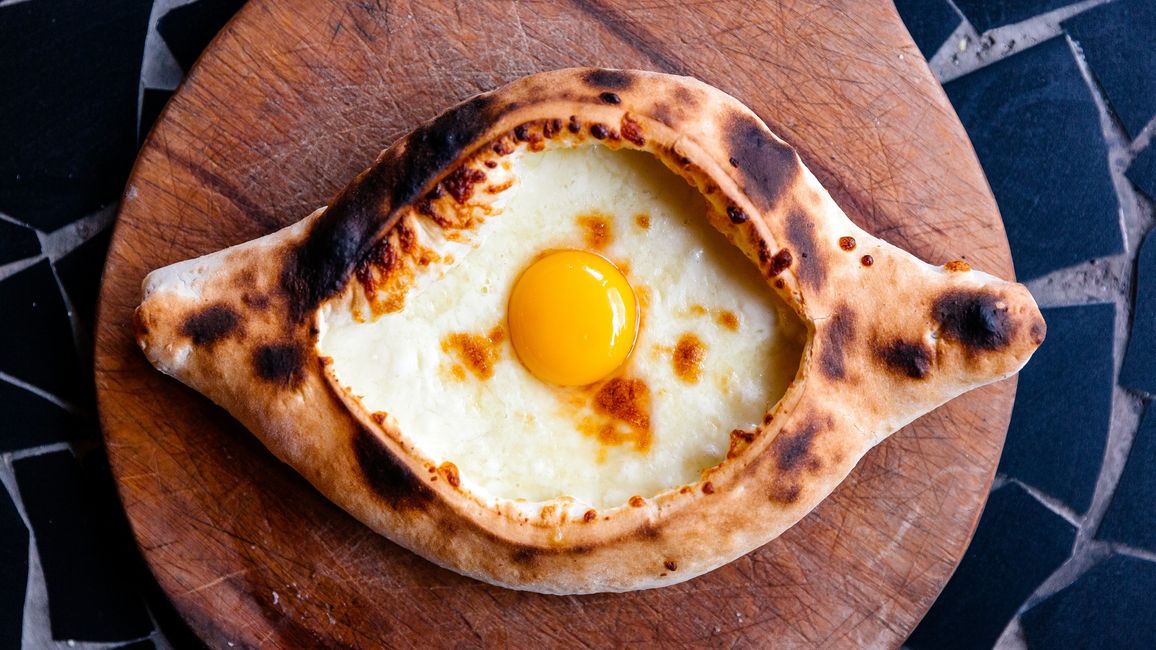Don Curry becomes workshop tester
ప్రచురించబడింది: 20.06.2023
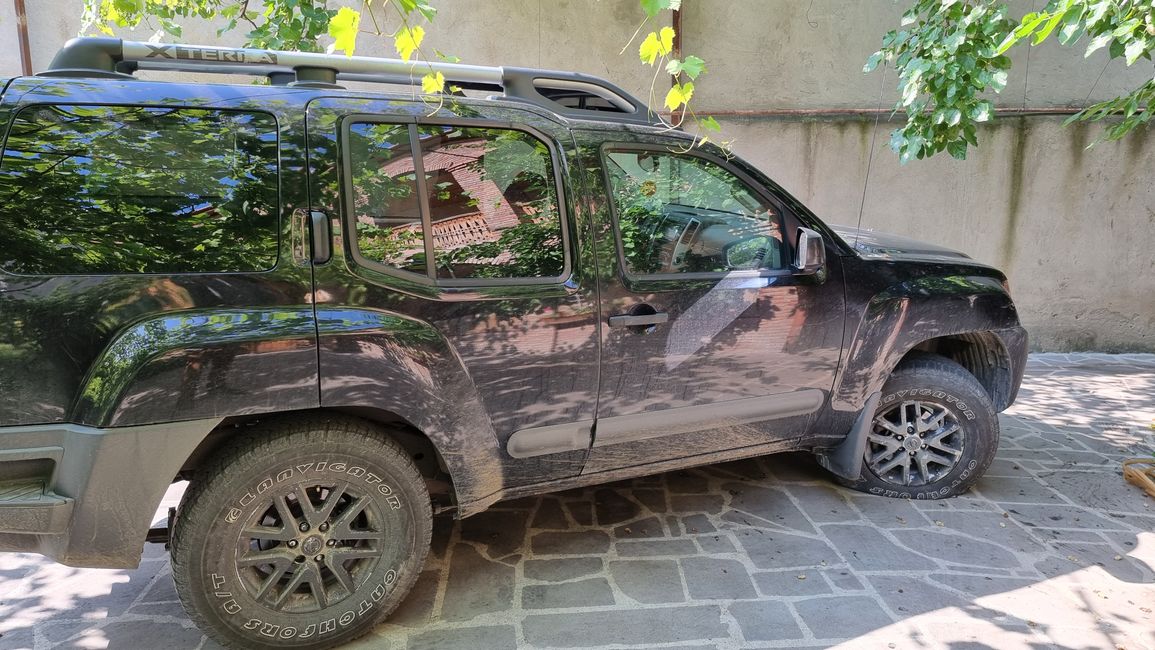
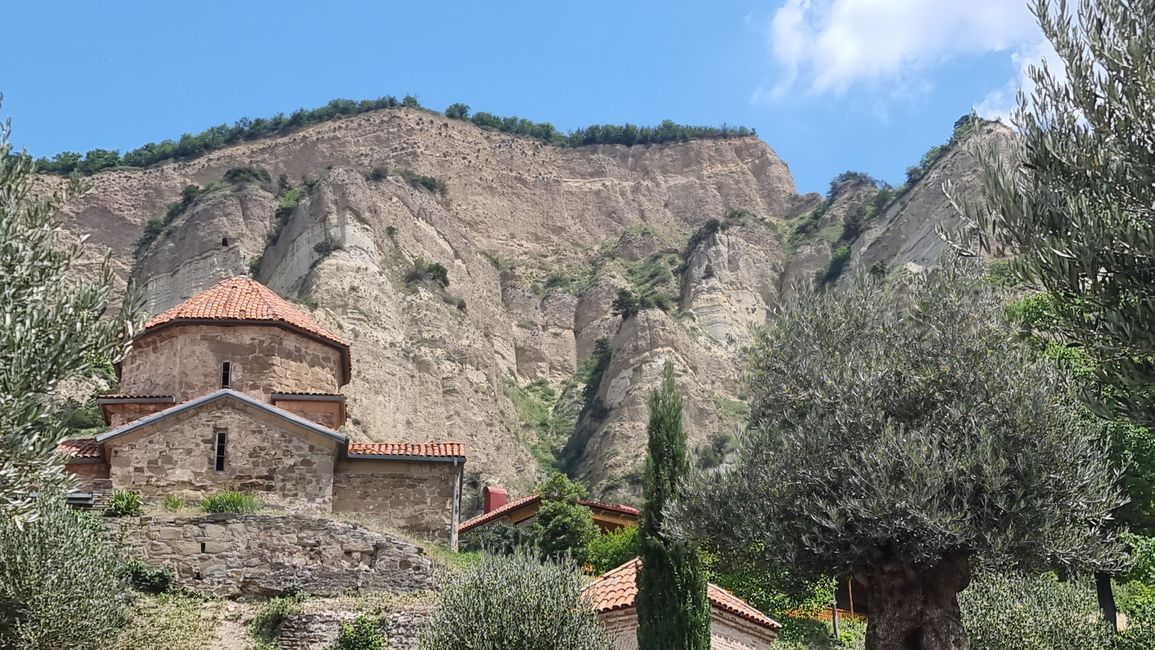
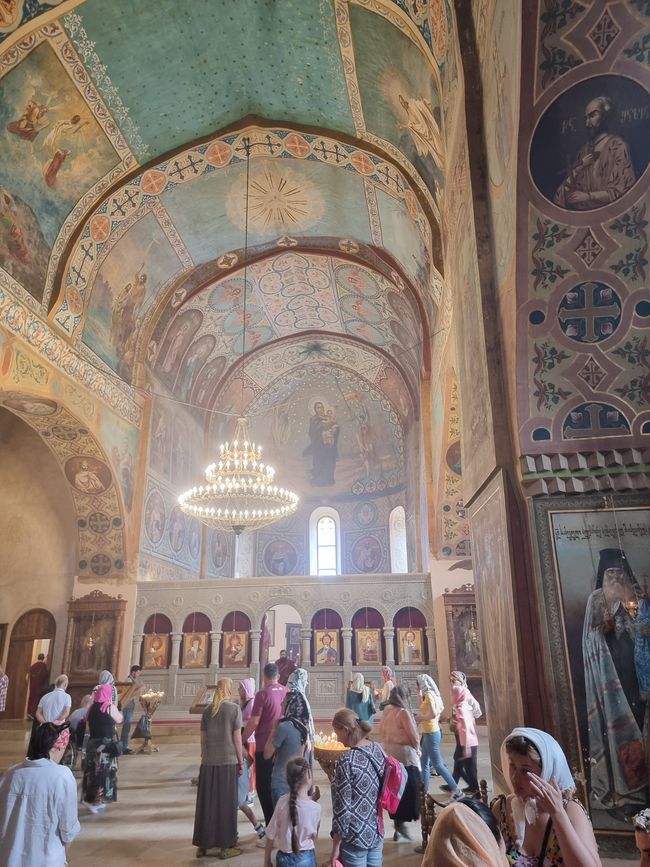
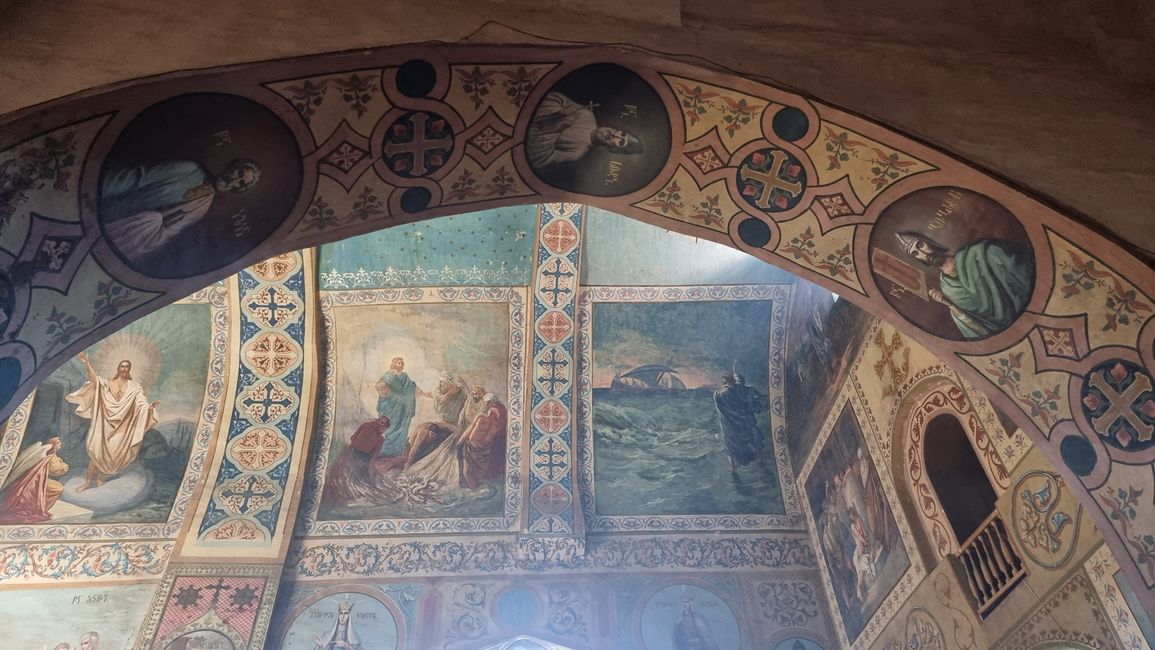
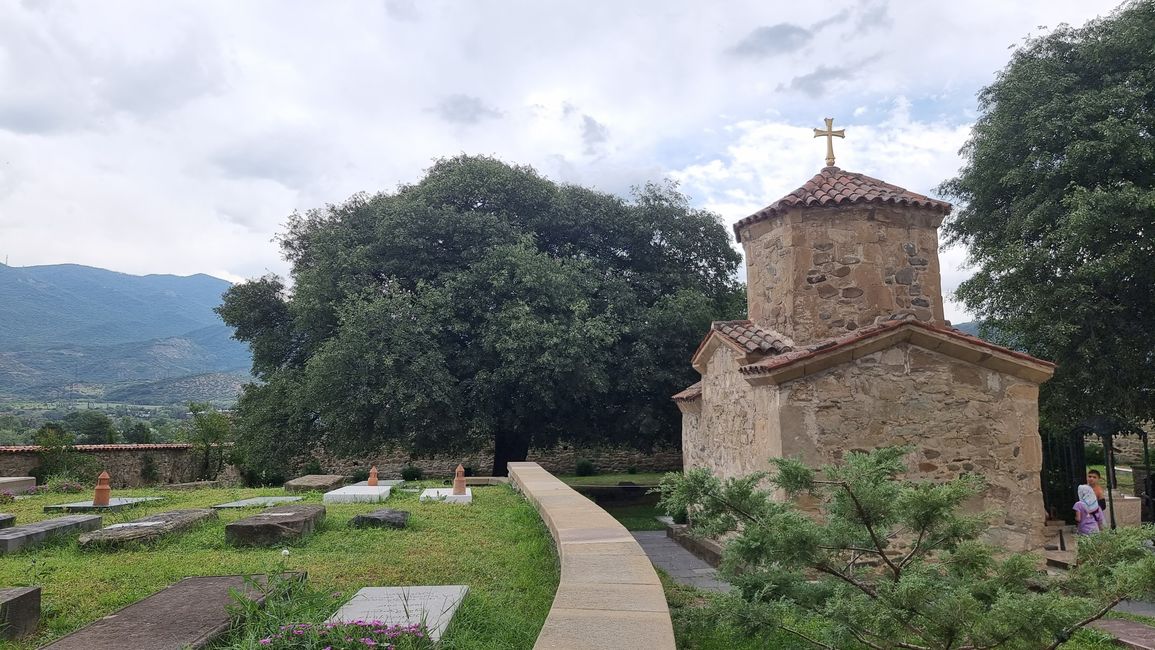
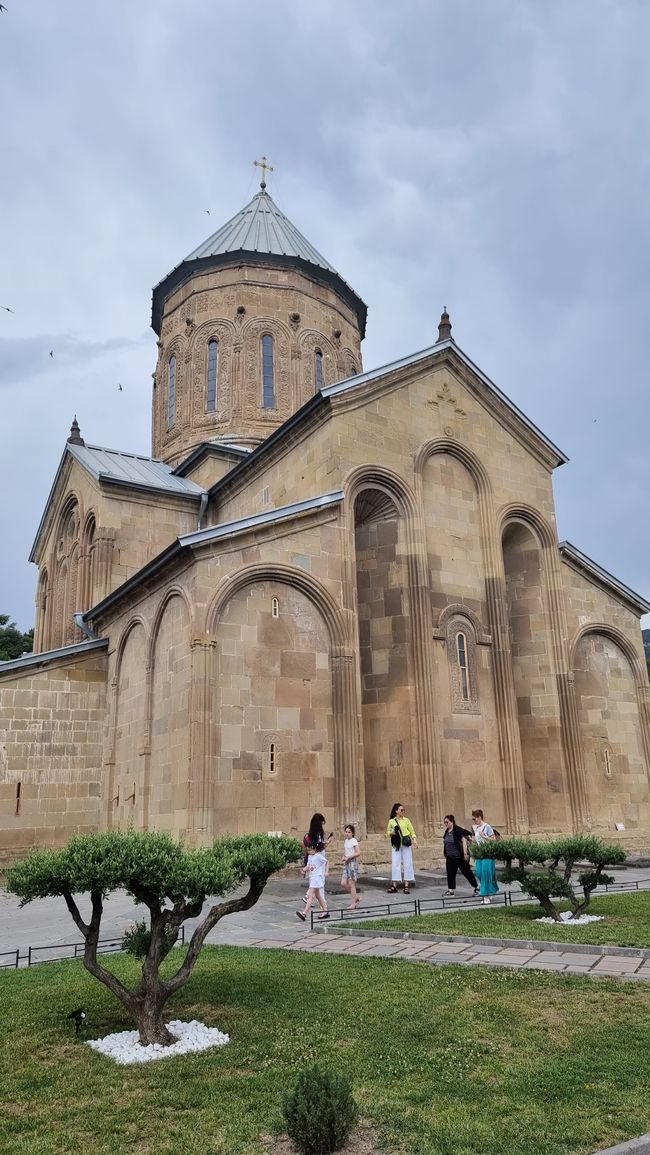
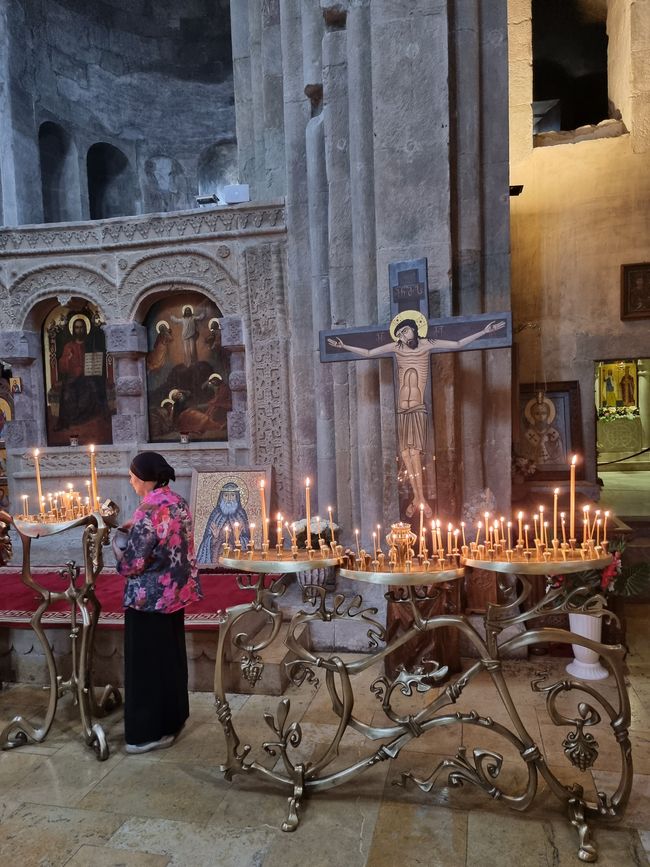
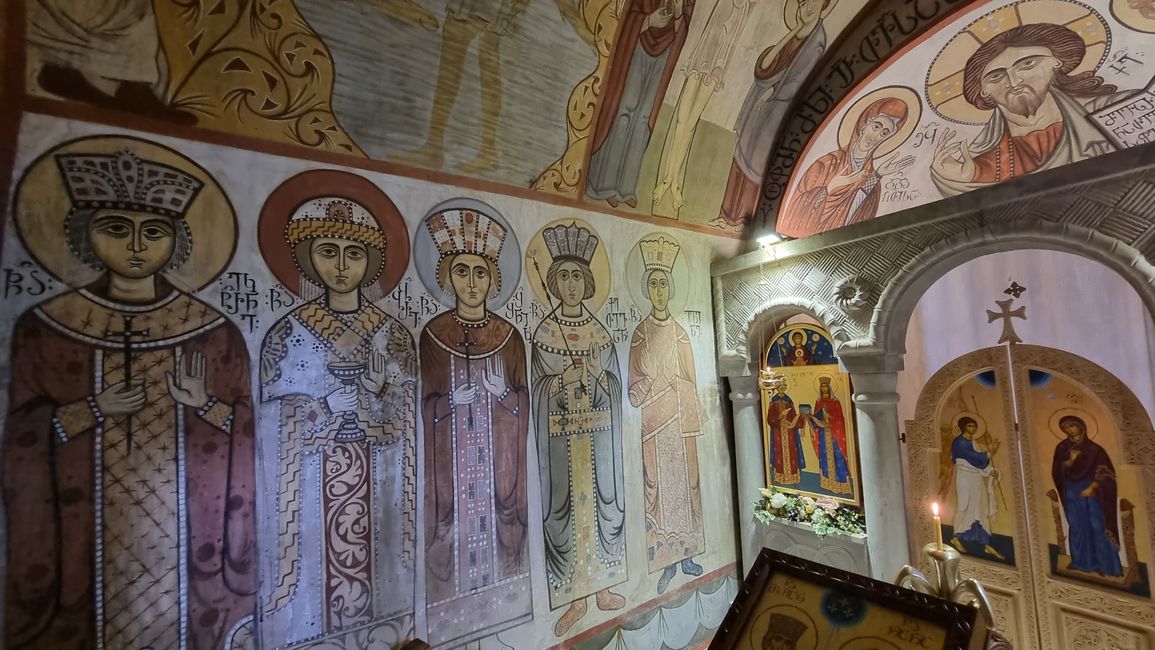
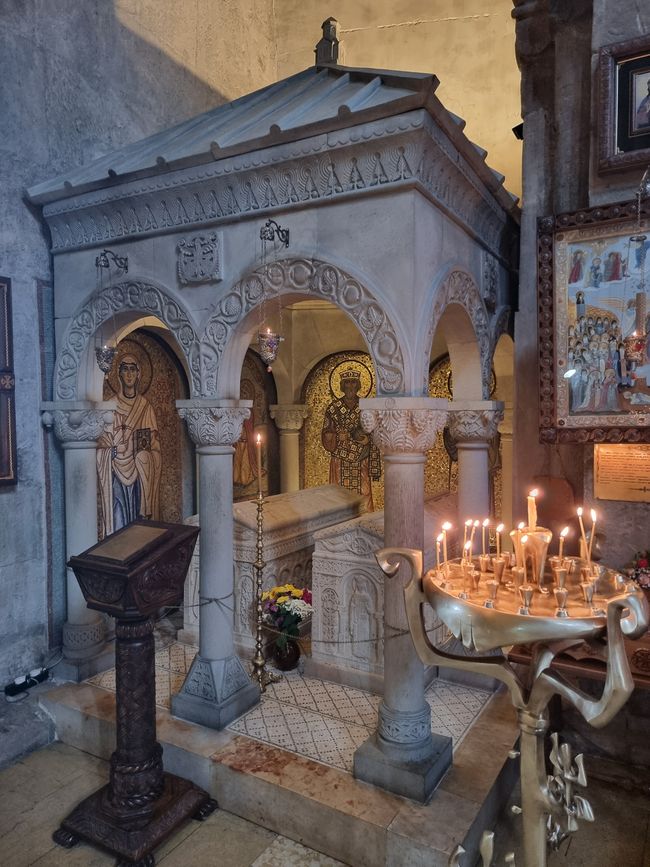
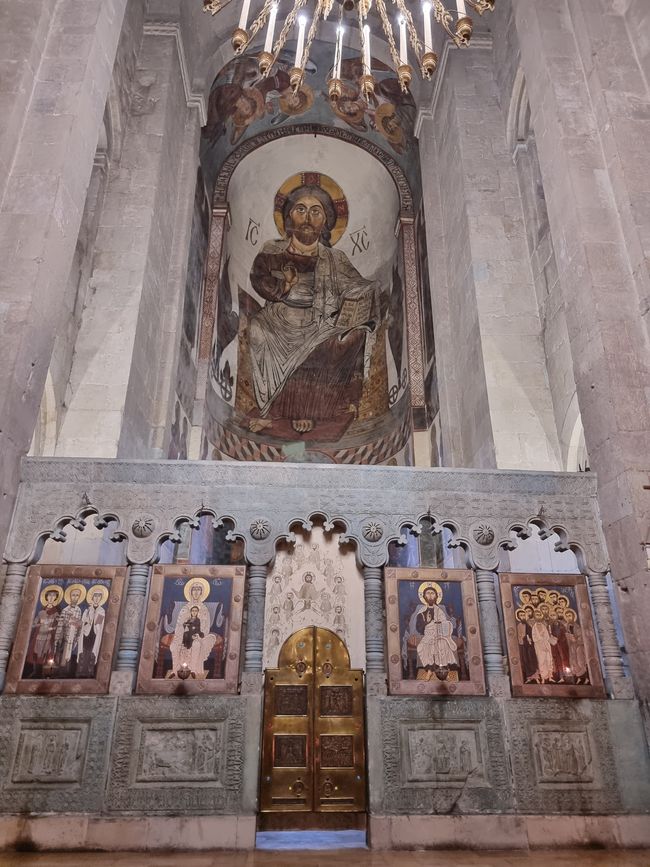
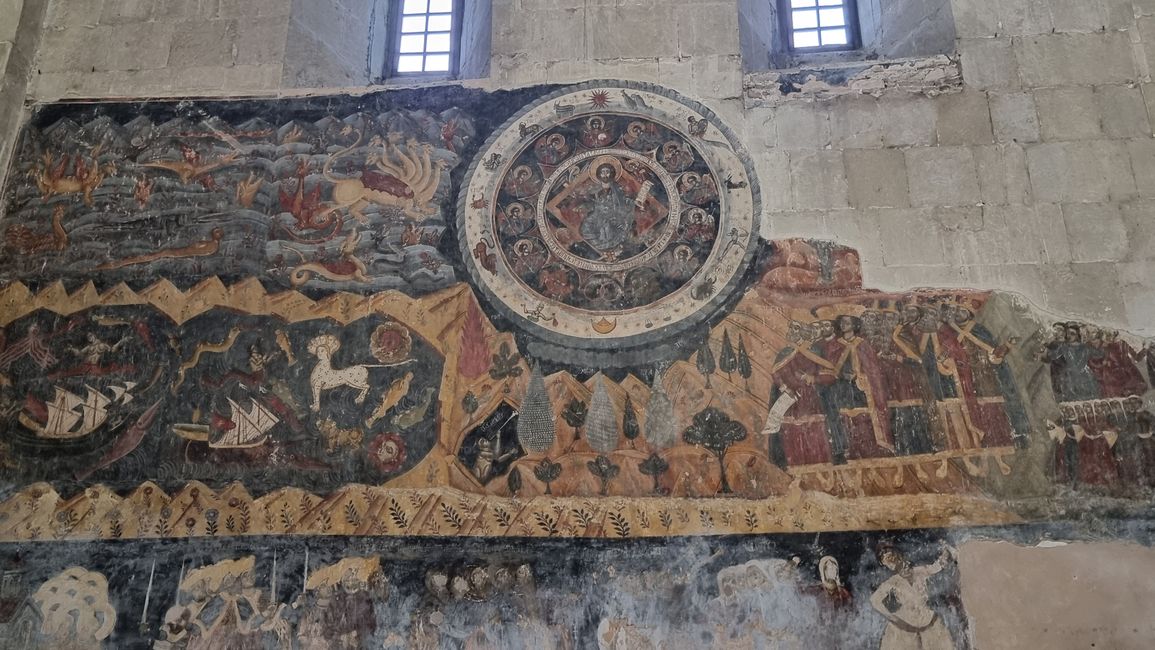
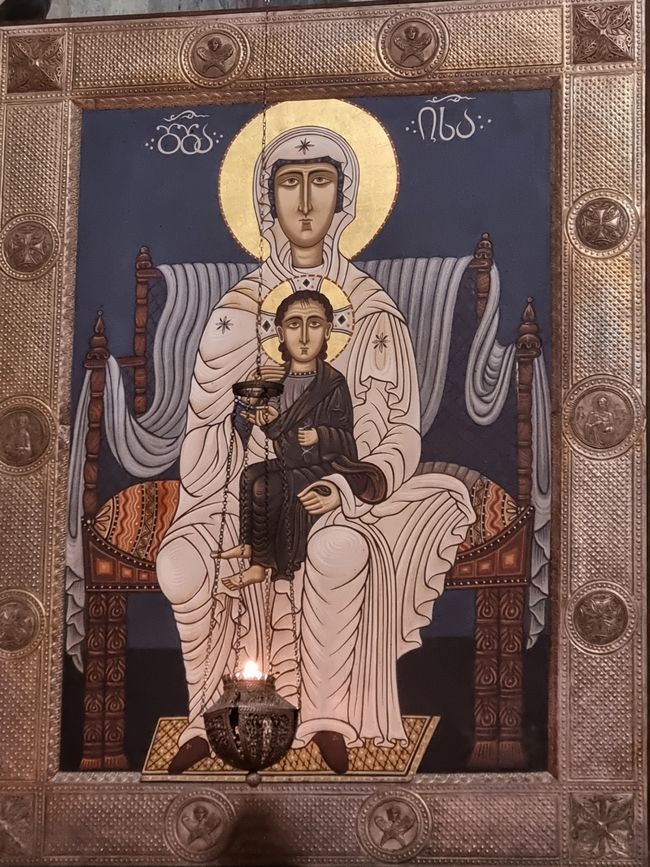
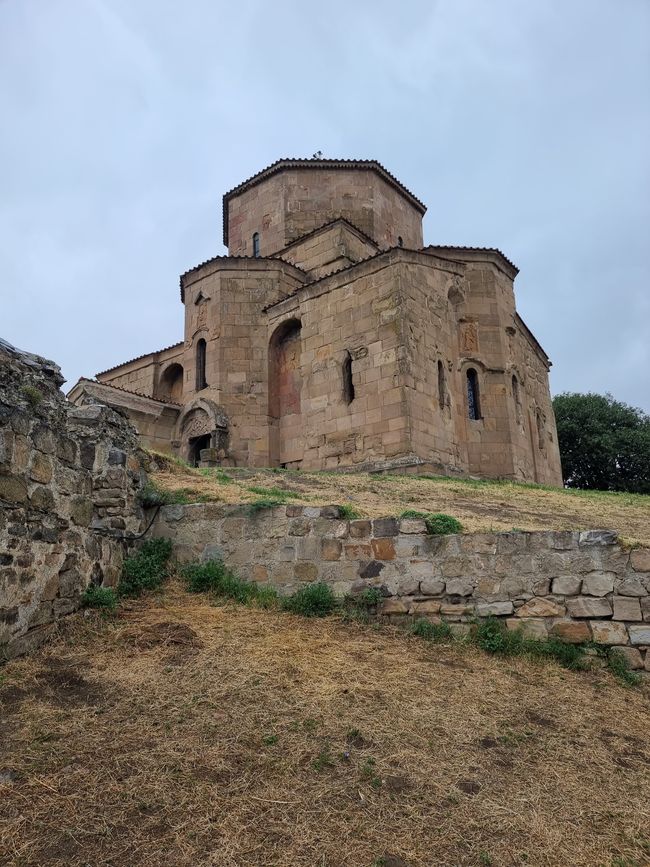
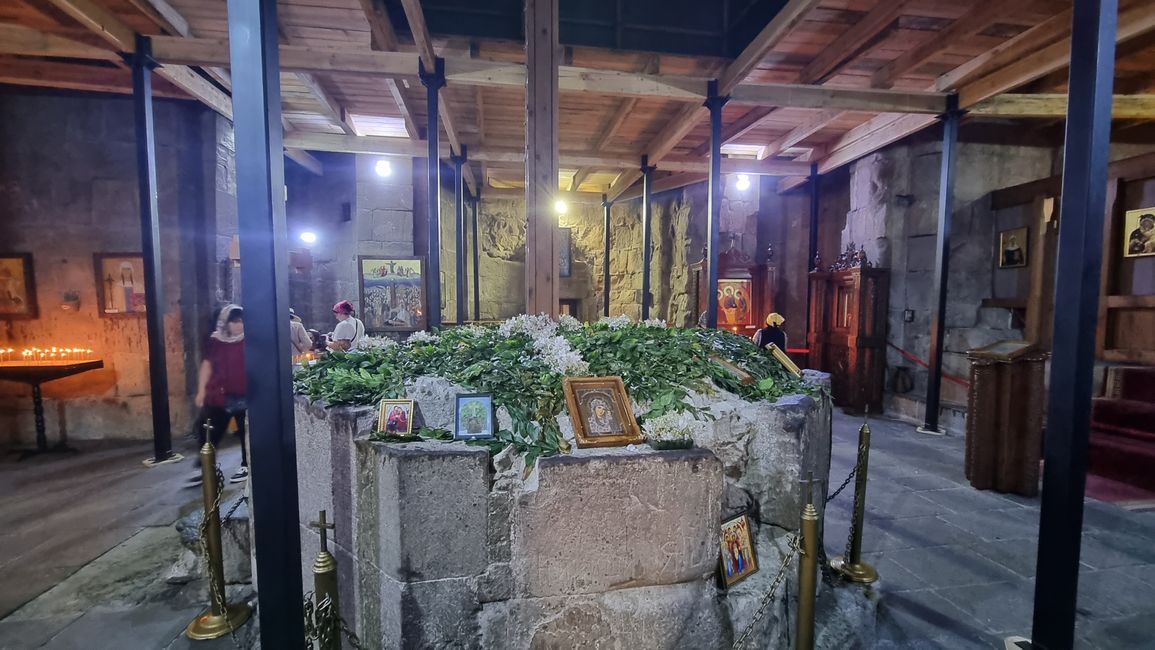
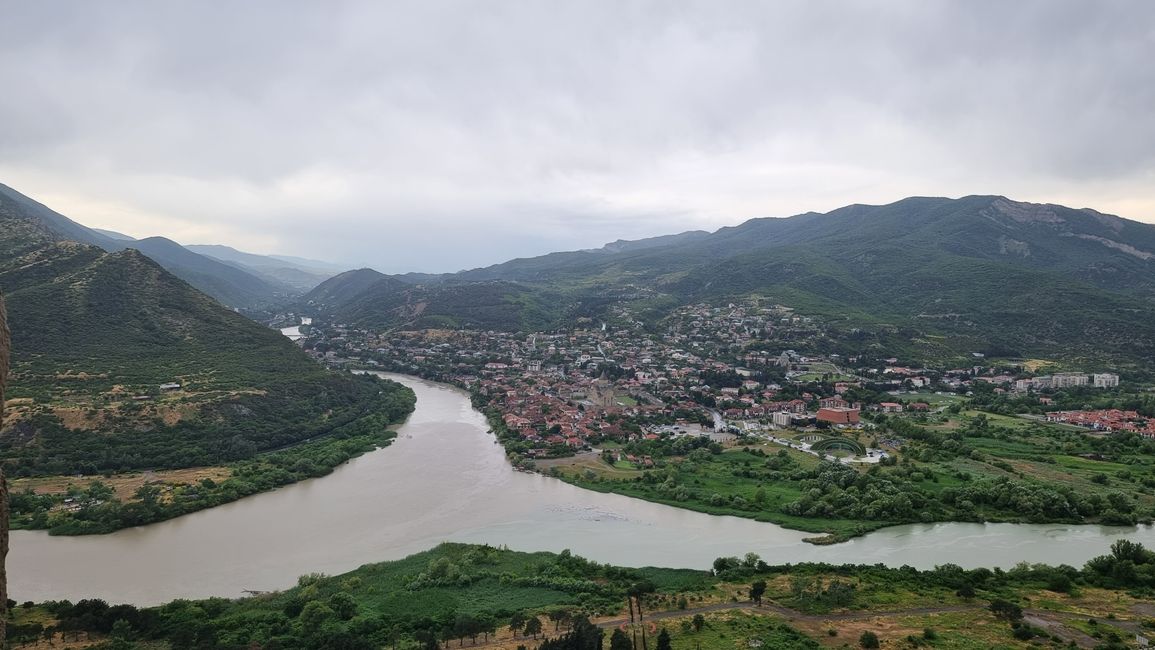
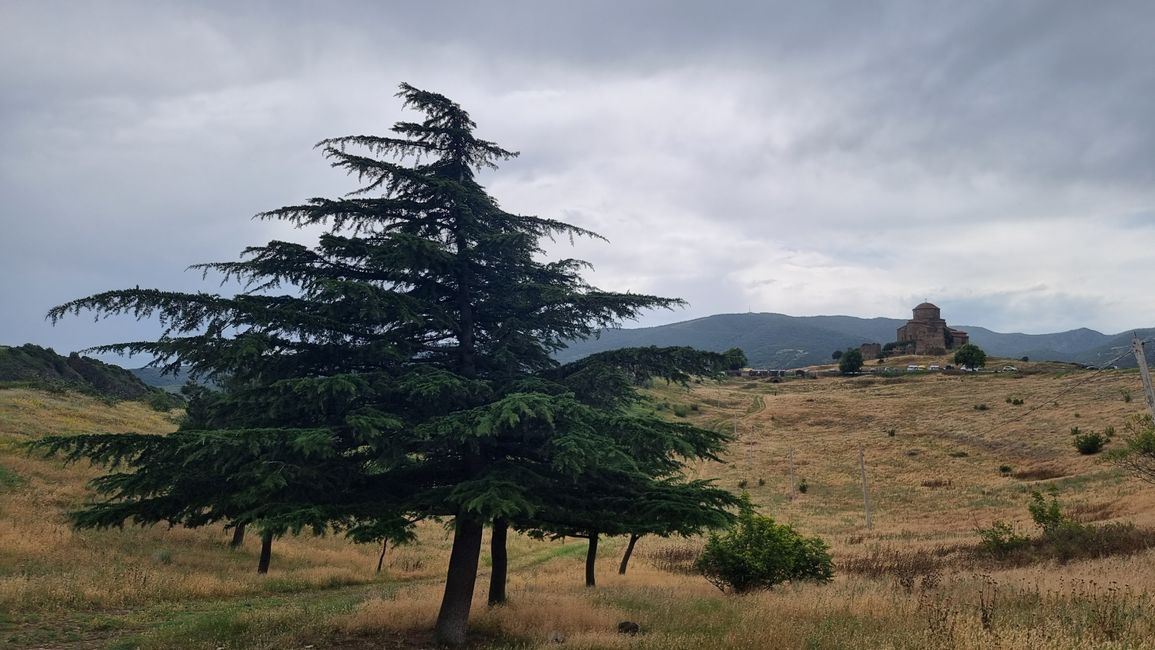
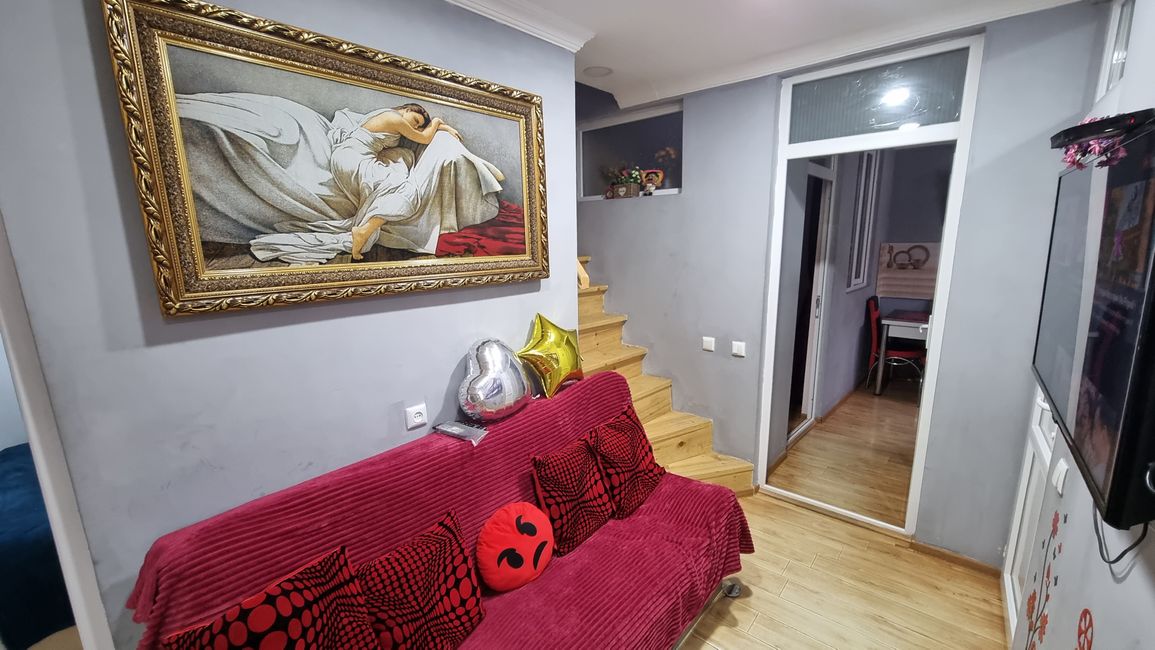
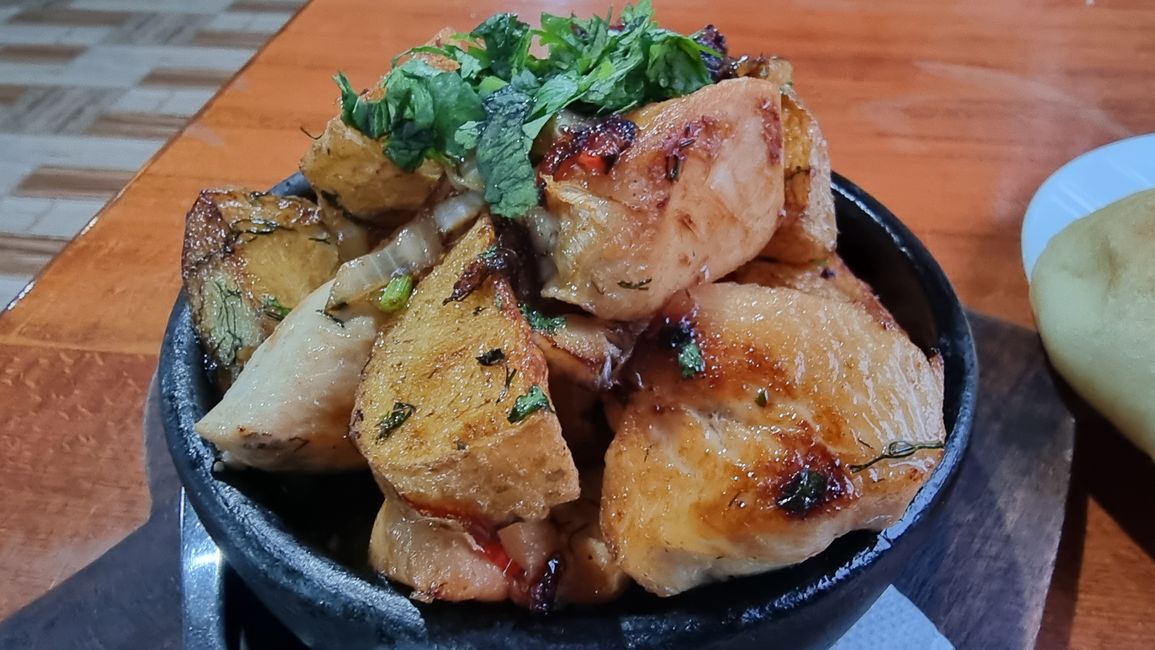
వార్తాలేఖకు సభ్యత్వాన్ని పొందండి
Don Curry had accepted by now that he would have much more time in Georgia than expected. This allowed him to take the days much more calmly and handle any complications more easily. Could a completely new vacation concept be developed here? Traveling as a pleasant relaxation, not as an expansion of horizons?
Today, Don Curry woke up not to the chirping of birds, but to the sound of church bells. He happened to live near a cathedral, and he would soon notice that the entire church service was broadcast to the surroundings through loudspeakers. So his entire breakfast was accompanied by prayers and songs. As always, he was served a far too sumptuous meal that was already prepared on a veranda table. Only the warm components were served now: a bowl of porridge, an omelette, and a thick sausages that Magdalena herself had made. As always, Don Curry could only eat a small part of the food. After paying for the overnight stay, he asked the landlady if he could leave Xerra in the courtyard for another two hours to have enough time for the cathedral and its surroundings. 'That wouldn't be a problem, but...', Magdalena began ominously.
Sensitively, she allowed Don Curry to have breakfast in peace before delivering the bad news to him: 'The car has a problem.' Don Curry suspected what she meant and immediately saw his fears confirmed: Xerra's front right tire was as flat as it had ever been. Now what? First, he asked Platon if he knew of a workshop in Mtskheta that was open on Sundays. In the meantime, Magdalena had informed her neighbor about the tire problem. He immediately came with an electric pump and started to reshape Xerra's tire. Platon didn't know of a workshop, but the neighbor did, to whom Magdalena translated Don Curry's question. She showed him on Google Maps where the workshop could be found; only 1 km away. Don Curry thanked the two for their help and quickly left the old town of Mtskheta before more tourists would clog the narrow streets.
At the workshop, a customer with an ancient Mercedes had just been served, so Don Curry was able to explain his situation. Since there was no common language between Don Curry and the tire specialist, Google Translate had to come to the rescue. This workshop made a completely different impression than the supposed 'used tire shop' in Tsviri. Nothing here was dirty or shabby, and new technology was being used. The master didn't loosen the wheel nuts with physical strength, but with a small tool; quickly discovered the damaged spot with the help of soapy foam instead of a water bath, and removed the half-loose patch. He showed it to Don Curry with the word 'No!'. Then he took out a patch that was more than twice as big from a cabinet and said, 'Yes!' The patch was quickly applied, the wheel was rebalanced, and it was screwed back onto Xerra. The whole process took less than 30 minutes. In the end, the bill came to 25 Lari (= €9). Don Curry still remembered that he had been satisfied after the first repair, but this second workshop no longer worked in a medieval fashion, but at the cutting edge of technology. And maybe sometimes the external impression is not deceiving after all...
With the newly patched tire, Don Curry wanted to resume his original plan of visiting the cathedral during the church service. He drove to a paid parking lot and had a much longer way from here than from 'Hotel Magdalena'. Many people had gathered in front of the cathedral. Don Curry immediately understood why that was the case. A priest with a long white beard only allowed visitors into the cathedral after a few questions; he turned away most others. Presumably, during the church service, no tourists were supposed to enter the church. Without knowledge of Georgian, Don Curry would hardly have passed an interrogation, so he listened a little longer to the songs being transmitted outside and meanwhile developed an alternative plan.
He decided to head for a monastery located outside. Shio-Mgvime Monastery dates back to the 6th century and is one of the oldest church foundations in Georgia. Like many other monasteries, it is difficult to reach, located in mountainous terrain. But Don Curry soon realized that in modern times, difficulty of access can have completely different aspects. Because the parking lot and access road to the monastery were completely crowded: tour buses, minibusses, cars, everything was abundant. Don Curry slowly made his way almost to the monastery gate, where there was a rocky space next to the road that was hardly suitable for a normal vehicle. But Xerra could do it. So inch by inch, Don Curry drove onto this space and hoped that no one would park next to him. Then he climbed the steep path to the monastery behind the gate, along with dozens of other people. The original old church is not accessible, instead a basilica from the Middle Ages is used, which is completely covered inside with relatively modern frescoes and icons. Even here, the Sunday church service was taking place, but no one was bothered by wandering around the church, chatting, or checking their phones. Don Curry saw a two-year-old boy being carried to the communion, crying loudly. But his protest didn't help him. Don Curry participated remotely in the Orthodox church service on a bench against the church wall, but left in time before everyone else would descend to the parking lot. However, there was another nasty surprise waiting for him there. A tour bus had parked next to him, and no driver was to be seen. A self-proclaimed parking attendant recognized Don Curry's situation and directed him past the bus on the rocky promontory, back onto the road. Without help, that would have been very risky; so Don Curry gladly paid the required €2.
The next destination was the Samtavro Monastery on the outskirts of Mtskheta. Here, in the monastery courtyard, stands Georgia's oldest church, which is said to have been built by St. Nino shortly after the Christianization of the country in the 4th century. In the tiny building, a maximum of 4 people can be inside at the same time. To the side of it rises the actual monastery church, which is significantly larger and more impressive. Already in the overflowing parking lot, Don Curry realized that a church service was still being held here as well. But shortly after his arrival, many people streamed out of the church to reach their vehicles. So he was able to easily admire the significant church in all its splendor. This is also where the tombs of the first Georgian royal couple are located, which were led to the Christian faith by St. Nino: King Mirian and Queen Nana.
Afterward, Don Curry drove back to the city center of Mtskheta, but this time he parked for free on the roadside north of the cathedral. By now, the four-hour church service had ended here as well, and Don Curry was able to explore the cathedral once again, even though now numerous tourists were streaming into it after waiting for so long. Although he had already visited and admired numerous churches in the country, he felt very strongly here that this was indeed the heart of Christian Georgia.
There was still one more church in the vicinity of Mtskheta to visit: the Jvari Monastery, located on a mountain high above the cathedral city. Once again, the switchback roads helped Xerra with the constantly ascending drive; once again, numerous other vehicles covered the parking lot; and once again, a strong rain began in the afternoon. Don Curry had experienced this almost every day. Even some Georgians this time resorted to umbrellas, although the locals usually simply ignored the refreshing precipitation from above. After a short ascent on foot, Don Curry stood in front of the old, simple monastery church. But even more than the building itself, the magnificent view of Mtskheta and the surrounding mountains fascinated him. A truly worthy conclusion to this day's program.
Directly below the monastery, Don Curry reached Georgia's only motorway, which connects Tbilisi and Kutaisi. He followed the route for almost 100 km to the west before he had to turn into the Lesser Caucasus. It is right in the middle of this region that the old spa town of Borjomi is located, which was a popular destination for the Russian nobility from the late 19th century to the mid-20th century. Tschaikovsky was also impressed by the place and the spectacular surroundings. Some of the old spa hotels are still standing, but today's Borjomi is also characterized by numerous construction sites and dilapidated hotels. It longs visibly for better times.
Don Curry was already awaited by his local landlady Nino, whose vacation apartment 'Apart-otel Nino' would be Don Curry's accommodation for four nights, right across from the venerable Borjomi Palace Hotel. But Nino's apartment could by no means be called venerable; it had a modern decor and was - for Don Curry's taste - a bit too kitschy and playful decorated. But as they say, there's no accounting for taste. In the evening, Don Curry went to the 'Bergi Terrace' restaurant, where he had to keep his jacket on the terrace. In the Lesser Caucasus, the climate is noticeably cooler than in the areas he had visited so far. Thanks to a spinach and mushroom soup and the delicious Ojakhuri (fried chicken with fried potatoes and onions), he quickly warmed up again, and a Georgian Karva beer rounded off the taste.
Don Curry was glad to have had the whole day for Mtskheta. According to his original plan, it would have been just one stop along the way. And he wouldn't have been able to afford a tire problem. He hoped that Xerra would no longer give him any trouble in the future. If it did, he had now gained some experience with Georgian workshops. And he would know what a trustworthy one looks like...
వార్తాలేఖకు సభ్యత్వాన్ని పొందండి
సమాధానం
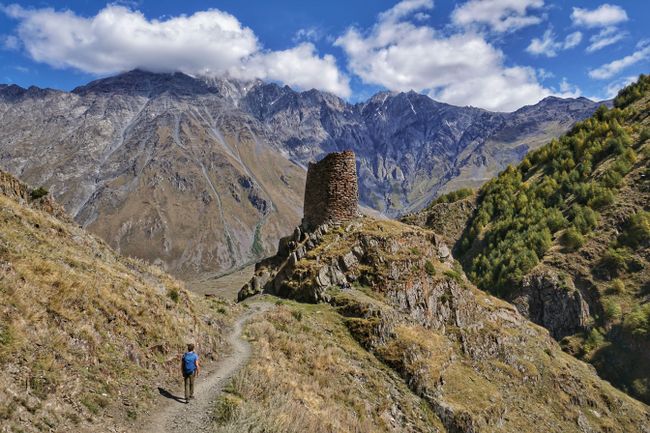
జార్జియా ప్రయాణ నివేదికలు

